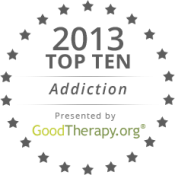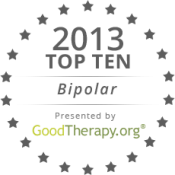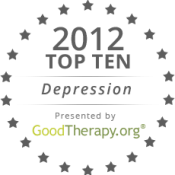 Following a traumatic event, several symptoms may arise in a person. Posttraumatic stress manifests in a variety of ways: reexperiencing the trauma via nightmares and flashbacks, avoidance of people and places that trigger memories of the event, elevated states of anxiety and arousal, and being in near-constant fight-or-flight mode, to name a few. These symptoms may last days, weeks, months, or years following traumatic experiences such as wartime combat, childhood abuse, rape, kidnapping, natural disaster, traumatic injury, or sudden death of a loved one.
Following a traumatic event, several symptoms may arise in a person. Posttraumatic stress manifests in a variety of ways: reexperiencing the trauma via nightmares and flashbacks, avoidance of people and places that trigger memories of the event, elevated states of anxiety and arousal, and being in near-constant fight-or-flight mode, to name a few. These symptoms may last days, weeks, months, or years following traumatic experiences such as wartime combat, childhood abuse, rape, kidnapping, natural disaster, traumatic injury, or sudden death of a loved one.
Processing the emotions tied to these memories is often unsettling, and recovering from traumatic experiences typically requires a great deal of support and guidance. The good news is that there are several websites and organizations devoted to helping those who have been subject to trauma. Many are geared toward military veterans; however, plenty of sites focus on recovery for those who were victims of other forms of trauma, such as abuse or assault, whether as children or adults.
We’ve compiled a list of the 10 best online resources for PTSD and trauma—GoodTherapy.org excluded—in 2013. As with our previous top 10 lists, our selections are based on quality and depth of content, presentation, and functionality.
- National Center for PTSD: The U.S. Department of Veterans Affairs hosts this site dedicated to research and education on trauma and PTSD in the lives of veterans. There is an informational section for veterans and their loved ones, as well as for professionals who are researching and providing care for those experiencing PTSD.
- Make the Connection: This site focuses specifically on offering “shared experiences and support” for veterans. The emphasis is on the power of support in the recovery process; veterans can locate local resources and access a wide range of information on dealing with PTSD as well as transitioning from service, the death of family or friends, and alcohol or drug problems. The video gallery features several personal stories of military veterans who have found hope and recovery in spite of flashbacks and other experiences. Online self-assessment screenings are also available to determine if a veteran has PTSD, depression, or a substance-abuse issue.
- Posttraumatic Stress Disorder Alliance: This network of professional and advocacy organizations has come together to provide an array of educational resources for those experiencing PTSD and their friends and family. In addition to combat veterans, the site is geared toward those who have experienced rape, physical assault, other forms of sexual assault, domestic or intimate partner violence, serious injury or accident, shooting or stabbing, sudden death of a loved one, childhood illness, witnessing a serious crime, and natural disaster. The PTSD Alliance also offers two free, downloadable booklets in their “resource center” to guide people through recovery.
- Gift From Within: This international nonprofit for survivors of trauma and victimization is in its 20th year of service. The site is rich with resources, information, and useful tools for those recovering from trauma of many kinds. In the “trauma support” section, tips from survivors for therapists, guided meditations, and stories from “support pals” can be accessed. In the bookstore, visitors can sift through a number of titles organized by topics, such as children and teens; healing and recovery from illness; healing and recovery for survivors and supporters; PTSD treatment, trauma, and violence; sexual abuse—male and female; and sexual assault, rape, and domestic violence. There are also DVDs on PTSD available for purchase.
- Real Warriors: Another site devoted to combat veterans and their loved ones, Real Warriors is an engaging, content-rich resource for help with the “invisible wounds” of war. The general message is that no one goes into combat and comes home unchanged, and that cultivating resilience and “real strength” is essential to recovery. Videos and podcasts are available for viewing and download, and veterans are encouraged to reach out and get the help they need. Several veterans share their personal stories of PTSD on the site, and others are encouraged to do the same. There is also a military crisis line and live chat number for those who need immediate assistance.
- My PTSD: This site is primarily a network of forums for those who are experiencing PTSD. Specific forums are designated for combat, domestic violence, sexual abuse, and traumatic stress, as well as a general PTSD discussion thread. There are also smaller threads for topics such as book clubs, events, studies and research, and recommending trauma physicians. In the “articles” section of the site, several insightful pieces are available on a variety of helpful topics such as finding negative core beliefs, recovery, effective treatments for PTSD, and treating the trauma of rape with cognitive behavioral therapy, among others.
- Trauma Survivors Network: In partnership with hospitals across the United States, the American Trauma Society created this community-oriented network of people and their families recovering from trauma. Through the Trauma Survivors Network, people can access local trauma center information, peer support groups, peer visitation opportunities, a parent and family handbook, survivor stories, a community forum, and more. TSN’s “NextSteps” program helps survivors to become autonomous self-managers while recovering from trauma. There is also a “family class” for those who are in caregiver and support roles for those who are experiencing PTSD.
- Sidran Institute: The Sidran Institute is a nonprofit organization devoted to helping people understand and recover from PTSD, dissociation, and co-occurring issues such as substance abuse, self-harm, and suicidal ideation. The site offers educational articles, resources, and information for adults, adolescents, and children who have survived trauma, as well as for schools, community support groups, and mental health and victims services professionals. Trainings are also available through the site for those who wish to deepen their knowledge of PTSD and other trauma-related issues.
- PTSD Association: Along with being greeted by a PTSD self-assessment test, visitors to this site will find a large body of useful information pertaining to PTSD. Founded by Ute Lawrence-Fisher, who survived the “most horrific car pile-up in Canadian history” in 1999, the PTSD Association aims to help those who are recovering from trauma to reclaim their lives. Clinical information, personal stories, coping strategies, and related links are among the resources available.
- National Child Traumatic Stress Network: With informational sections for parents and caregivers, medical professionals, military children and their families, and educators, the National Child Traumatic Stress Network (NCTSN) covers all bases of child traumatic stress. Established by the U.S. Congress in 2000, the NCTSN offers guidance, tools, and links for coping with and recovering from neglect, natural disasters, sexual or physical abuse, terrorism, grief, refugee and war-zone trauma, traumatic illness, early childhood trauma, and school, community, or domestic violence. Numbers for various child and adolescent crisis lines are also provided.
Have a website you would like to see in our Top 10? Recommend it here.


 Best of 2013: GoodTherapy.org’s Top 10 Websites for Addiction
Best of 2013: GoodTherapy.org’s Top 10 Websites for Addiction Best of 2013: GoodTherapy.org’s Top 10 Websites for Bipolar
Best of 2013: GoodTherapy.org’s Top 10 Websites for Bipolar Best of 2012: GoodTherapy.org's Top 10 Websites for Depression
Best of 2012: GoodTherapy.org's Top 10 Websites for Depression

Please fill out all required fields to submit your message.
Invalid Email Address.
Please confirm that you are human.
Leave a Comment
By commenting you acknowledge acceptance of GoodTherapy.org's Terms and Conditions of Use.